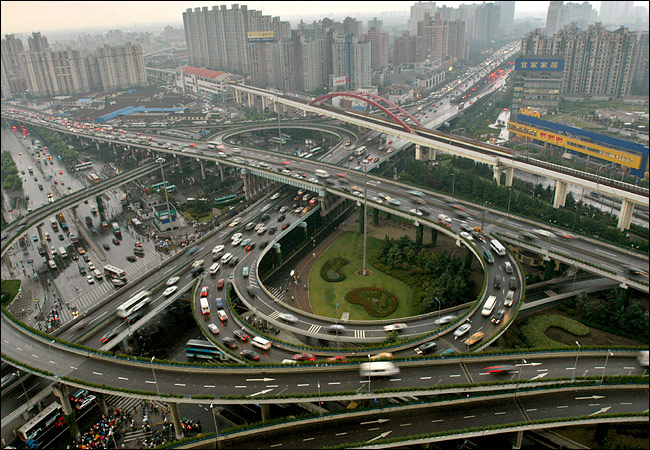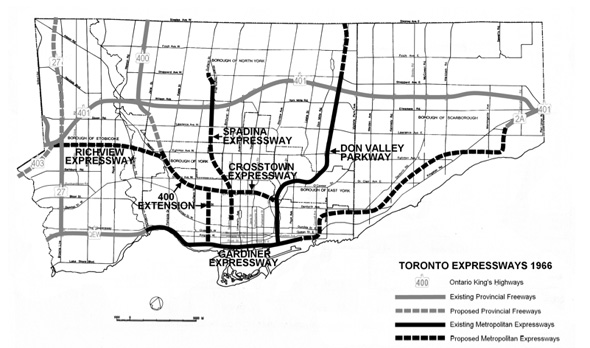agoraflaneur
Active Member
One factor not mentioned here is that a significant group of people in China likes subways and infrastructure and believes it shows how "modern" they are - they are seen as prestige projects and also drive GDP growth targets which city managers have to meet every year. Even if China were a democracy, I can't see many people in China's cities raving on about how they don't want to pay for the subways. Also, very few people in China own cars as a percentage of the population and transit isn't just something to hopefully have, it is a necessity. China's cities are much denser, requiring subways to an extent that we in North America just will simply *never* need. Anyone who thinks they can compare Toronto to Nanjing isn't comparing comparable cities. We will never need the same number of subway km's as a similarly populated Chinese city - so don't get your hopes up any time soon. Same goes with HSR - people in North America just don't use trains that much, and most (much to my chagrin) never want to . They don't see HSR as some great achievement, unfortunately. As to the speed of construction issue, China uses huge numbers of workers per construction site, who often work 24hrs a day - their construction laws typically don't hinder development to daytime hours. Last, we are in no great rush to build our infrastructure because we won't be greatly hindered if we don't - whereas China is catching up to developed countries, who have many more times the infrastructure per capita than China, even after the last 30 years of development. I don't have the figures in front of me, but Spain with its 50 million people have an insane number of km's per capita compared to China - just Guangdong has, what, more than 100 million people? China's achievements, while notable, often look better simply because of the sheer scale over there, which never fails to impress (and, unfortunately, on issues like the scale of environmental degradation, shock).
As to our workers being entitled and expensive, well, I am glad that construction workers get fair pay. I do wish that we would move toward a system of infrastructure development that limits the moves such as the Eglinton line cancellation - but I also think that democracy can result in good changes, such as the Allen expressway not being built. Toronto is infinitely better (IMHO) for that intervention, which by Chinese (and American, frankly) standards would have been seen as a disaster.
Last, I just wanted to say to the comment that westerners belittle Arab achievements that what countries like Dubai and Abu Dhabi are doing can be horrible, not impressive. A least a decent portion of their labour force is modern slavery, pure and simple. They use cheap, ill-treated labour and western technical knowledge to build their tall buildings, funded by pumping something out of the ground. What they do themselves is often entirely unclear. For instance, as of 2013, only 476,000 of 2,330,000 people living in the Abu Dhabi were UAE nationals. I will never care that Saudi Arabia has a 1km tower until it has a decent society. China, on the other hand, started from the ground up by building a manufacturing base then expanding technical capabilities, which is respectable and, especially when compared to what is happening in the rich middle east, commendable. Also, you never hear westerners dismissing muslim Turkey, which developed without importing ill treated workers and living off of gushing oil wealth.
Oh, and this line will NEVER happen.
As to our workers being entitled and expensive, well, I am glad that construction workers get fair pay. I do wish that we would move toward a system of infrastructure development that limits the moves such as the Eglinton line cancellation - but I also think that democracy can result in good changes, such as the Allen expressway not being built. Toronto is infinitely better (IMHO) for that intervention, which by Chinese (and American, frankly) standards would have been seen as a disaster.
Last, I just wanted to say to the comment that westerners belittle Arab achievements that what countries like Dubai and Abu Dhabi are doing can be horrible, not impressive. A least a decent portion of their labour force is modern slavery, pure and simple. They use cheap, ill-treated labour and western technical knowledge to build their tall buildings, funded by pumping something out of the ground. What they do themselves is often entirely unclear. For instance, as of 2013, only 476,000 of 2,330,000 people living in the Abu Dhabi were UAE nationals. I will never care that Saudi Arabia has a 1km tower until it has a decent society. China, on the other hand, started from the ground up by building a manufacturing base then expanding technical capabilities, which is respectable and, especially when compared to what is happening in the rich middle east, commendable. Also, you never hear westerners dismissing muslim Turkey, which developed without importing ill treated workers and living off of gushing oil wealth.
Oh, and this line will NEVER happen.
Last edited:






